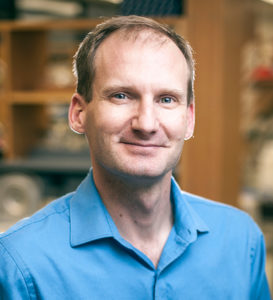
David K. Cortez, Ph.D.
Chair of Biochemistry Department
Hortense B. Ingram Professor of Cancer Research
Professor of Biochemistry
Associate Director for Basic Science Research at Vanderbilt-Ingram Cancer Center
- : david.cortez@vanderbilt.edu
- : 615-322-8547
- :
613 Light Hall
2215 Garland Avenue
Nashville, - 37232-0146
Genome maintenance by the DNA damage response
Name: Cortez, David
Title: Professor of Biochemistry
Department: Biochemistry
Office Address: 613B Light Hall
Phone Number: 615-322-8547
E-mail: david.cortez@vanderbilt.edu
Lab URL: https://lab.vanderbilt.edu/cortez-lab
Research Keywords: cell cycle, DNA damage, replication, proteolysis, signaling, DNA repair, checkpoint,
Research Specialty: Genome maintenance by the DNA damage response
Research Description: Billions of base pairs of DNA must be replicated trillions of times during a human lifetime. Adding to the difficulty, thousands of DNA lesions happen in each cell of our body every day. Furthermore, replication is challenged by difficult to replicate sequences and conflicts with transcription. DNA damage response mechanisms act to repair the damaged DNA, signal checkpoint activation, ensure completion of DNA replication, and maintain genome stability. Defects in these mechanisms can cause developmental abnormalities, premature aging, and cancer.
The Cortez lab is dedicated to understanding the mechanisms that maintain genome integrity and promote the complete and accurate replication of the genome.
Current projects in the lab include:
1. Discovery of new replication, repair, and DNA damage response proteins using genetic screens and proteomics
2. Characterization of replication fork remodeling and fork protection proteins related to the BRCA1/BRCA2 pathway
3. Understanding sources of genome instability in normal and cancer cells
4. Analysis of DNA damage signaling pathways controlled by the ATR kinase
5. Development of cancer therapeutic approaches targeting the DNA damage response
6. Characterization of mechanisms that repair abasic sites generated by endogenous and environmental mutagens
We use a multi-disciplinary approach including genetics, biochemistry, cell biology, proteomics, and structural biology. The lab is part of the Genome Maintenance Program within the Vanderbilt-Ingram Cancer Center, Center in Molecular Toxicology, Vanderbilt Institute of Chemical Biology, and Department of Biochemistry.
SIGNIFICANCE
Since DNA damage is continuously produced as a byproduct of normal cell metabolism and DNA replication, any deficiency in responding to and repairing this damage can cause chromosomal alterations that may lead to cancer, developmental abnormalities, and other diseases. In addition, many cancer therapies including radiation therapy and most chemotherapeutic strategies cause DNA damage. Therefore, manipulating the DNA damage response may be one means of improving the outcomes of these therapies. Discovering the mechanisms by which cells respond to DNA damage and other types of replication stress will provide insights into the etiology of diseases like cancer as well as identify opportunities for therapeutic intervention.
Postdoctoral Position Availability and Details: Postdoctoral positions are available in the areas of molecular cancer biology, signal transduction, cell cycle, and DNA repair. Please submit a CV and three letters of recommendation.